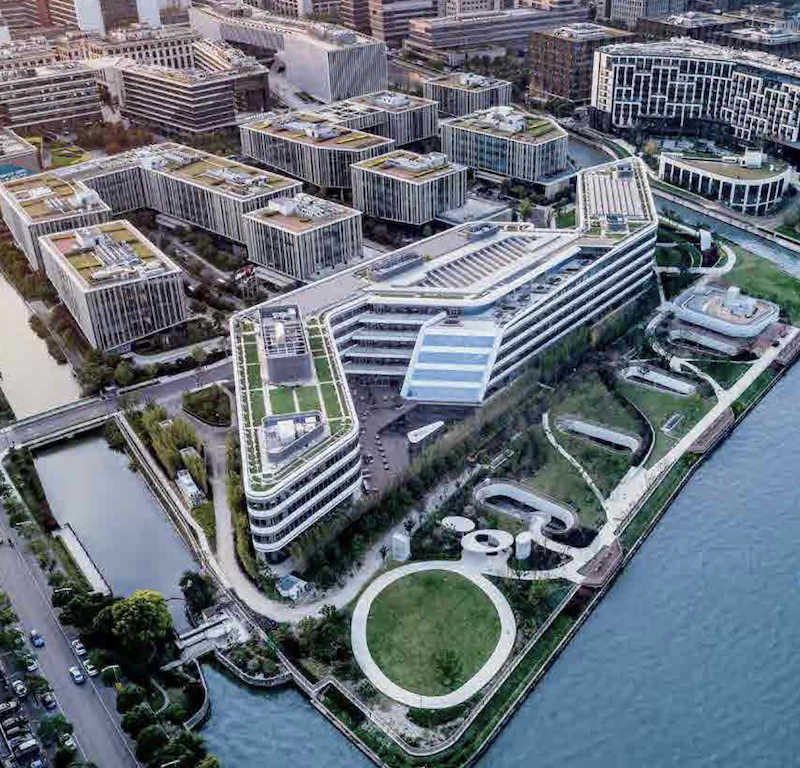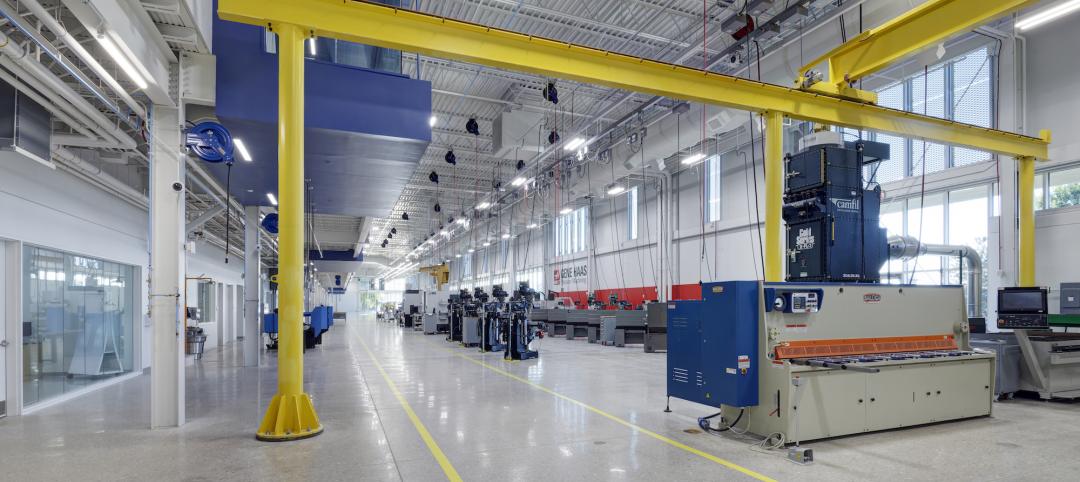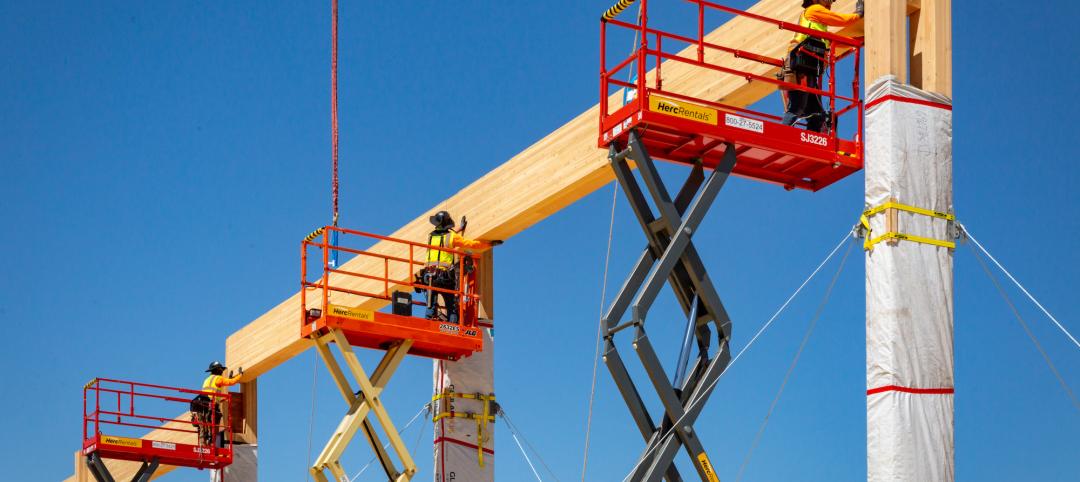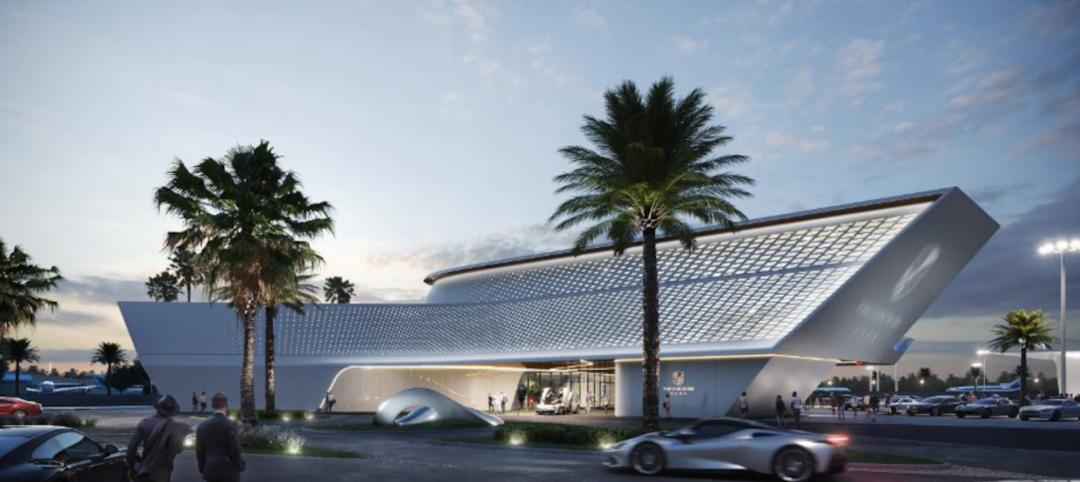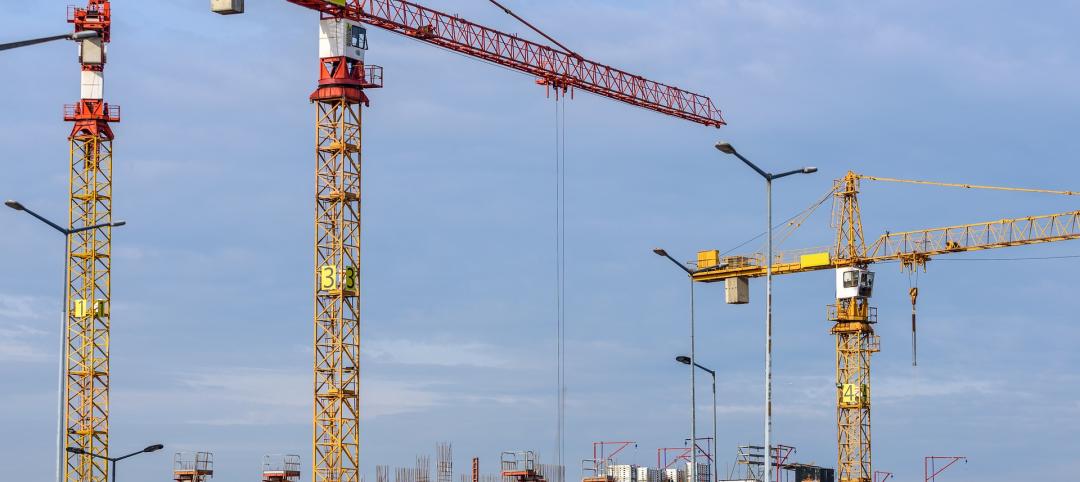Design that “puts people back at the center” is now the driving force behind resilient, livable cities, according to Gensler’s just-released 2018 Design Forecast, “Shaping the Future of Cities.”
The 61-page report, which can be downloaded from here, is a collection of more than 200 trends that are defining design across the globe. The report is organized into three sections—Work, Lifestyle, and Cities—and is framed by five forces that Gensler sees as having the greatest impact on businesses, cities, and human experiences: demographic shifts, technology driven disruption, rapid urbanization, climate change, and worldwide volatility.
Throughout the report, Gensler draws upon its own research and portfolio of projects to illustrate trends across myriad typologies. Each of the report’s chapters provides statistical tidbits from a variety of sources that call out trends and dynamics that AEC firms and their clients can’t ignore.
Some examples:
•From 2017 to 2027, it’s predicted that the U.S. will face a shortage of 8.2 million laborers—the most significant deficit in the past 50 years. “To succeed, organizations must put people first: investing in the individual, diversifying work spaces, and reinforcing a shared culture and mission,” states Gensler.
•“By 2020, 31 billion devices and 4.8 billion people will be connected to the Internet,” according to the research firm Gartner.
•Global coworking spaces will grow from 14,411 in 2017 to over 30,000 in 2022. The number of worldwide coworking members will nearly triple to over five million.
•Forbes estimated last year that there could be 10 million self-driving cars on the road by 2020. The Gensler Research Institute predicts autonomous vehicles will completely change cities. “Building form will change radically as design is dictated less—or not at all—by parking requirements, which will decrease dramatically.”
•Credit Suisse predicts that as online sales march toward 35% of all retail sales by 2030 (from 17% today), between one fifth to one quarter of American malls could close by as early as 2022.
Time and again, Gensler’s forecast returns to its primary thesis: that regardless of technological advances or political and economic uncertainties, design must factor in human needs and social interactions to be effective. For instance, Gensler foresees the next generation of office building as drawing employees back into the office. “Mobility will remain an important part of work, but the value of face-to-face remains undisputed,” the report states. “On-site spaces that support a variety of work modes—including social—create dynamic developments and yield longer-term tenants.”
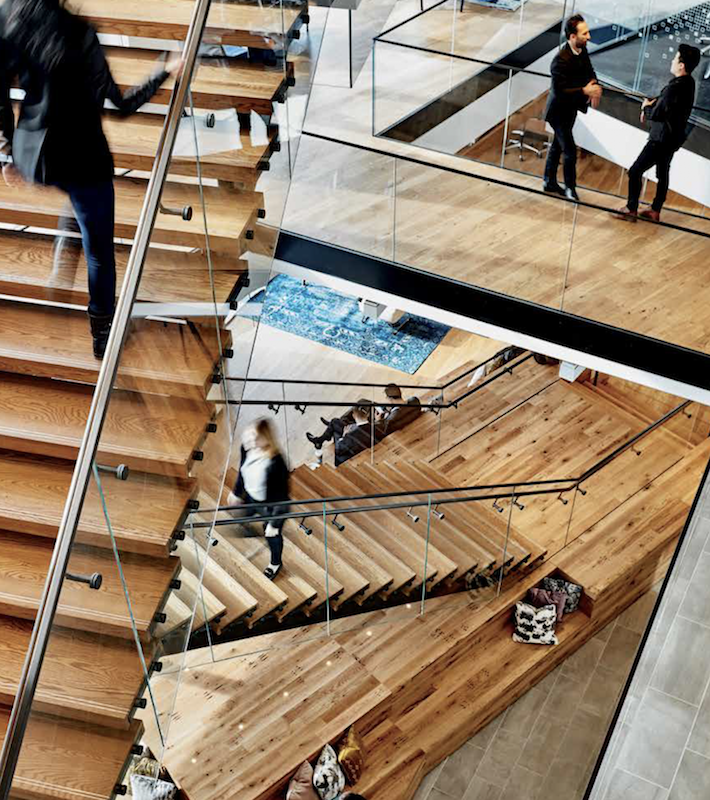
The Boston Consulting Group's office in New York City features staircases that facilitate floor-to-floor interaction and employee movement. Image: Gensler
That prediction dovetails with Gensler’s expectation that multipurpose buildings “are the future,” and that smart buildings “are critical to the workplace experience.” But as data multiply exponentially, “companies will need to expand their capabilities to harness and interpret their internal workplace data.”
Lifestyle design is now reckoning with trends that are making single-use spaces obsolete. Frictionless, seamless design is becoming ubiquitous, with convenience being a differentiator, as consumers take more control of their experiences in ways that shape, and reshape, brand identities.
Gensler sees “smart cities” in terms of their adaptability and resilience. As engines of innovation, cities “are nurturing a new mix” of businesses and people. Their leaders are in the vanguard of climate action “because they depend on it” for survival and growth. And wellness is the new measure of livability. “Health has become a major factor in urban and community planning, as research and public awareness about the link between them grows,” the report states.
Related Stories
Mass Timber | Jan 30, 2023
Net-positive, mass timber building will promote research on planetary well-being in Barcelona
ZGF Architects, along with Barcelona-based firms MIRAG and Double Twist, have designed a net-positive, mass timber center for research on planetary well-being. Located in Barcelona, the Mercat del Peix Research Center will bring together global experts in the experimental sciences, social sciences, and humanities to address challenges related to the future of the planet.
AEC Tech | Jan 27, 2023
Epic Games' latest foray into the AEC market and real estate industry
From architecture to real estate, the realm of computer-aided design hits new heights as more and more firms utilize the power of Epic Games’ Twinmotion and Unreal Engine.
University Buildings | Jan 27, 2023
Ozarks Technical Community College's advanced manufacturing center is first-of-a-kind in region
The new Robert W. Plaster Center for Advanced Manufacturing at Ozarks Technical Community College in Springfield, Mo., is a first-of-a-kind educational asset in the region. The 125,000-sf facility will educate and train a new generation in high tech, clean manufacturing and fabrication.
Mass Timber | Jan 27, 2023
How to set up your next mass timber construction project for success
XL Construction co-founder Dave Beck shares important preconstruction steps for designing and building mass timber buildings.
Sports and Recreational Facilities | Jan 26, 2023
Miami’s motorsport ‘country club’ to build sleek events center
Designed by renowned Italian design firm Pininfarina and with Revuelta as architect, The Event Campus at The Concours Club will be the first and only motorsport-based event campus located within minutes of a major metro area.
K-12 Schools | Jan 25, 2023
As gun incidents grow, schools have beefed up security significantly in recent years
Recently released federal data shows that U.S. schools have significantly raised security measures in recent years. About two-thirds of public schools now control access to school grounds—not just the building—up from about half in the 2017-18 school year.
AEC Tech Innovation | Jan 24, 2023
ConTech investment weathered last year’s shaky economy
Investment in construction technology (ConTech) hit $5.38 billion last year (less than a 1% falloff compared to 2021) from 228 deals, according to CEMEX Ventures’ estimates. The firm announced its top 50 construction technology startups of 2023.
Sports and Recreational Facilities | Jan 24, 2023
Nashville boasts the largest soccer-specific stadium in the U.S. and Canada
At 30,105 seats and 530,000 sf, GEODIS Park, which opened in 2022, is the largest soccer-specific stadium in the U.S. and Canada. Created by design firms Populous and HASTINGS in collaboration with the Metro Nashville Sports Authority, GEODIS Park serves as the home of the Nashville Soccer Club as well as a venue for performances and events.
Concrete | Jan 24, 2023
Researchers investigate ancient Roman concrete to make durable, lower carbon mortar
Researchers have turned to an ancient Roman concrete recipe to develop more durable concrete that lasts for centuries and can potentially reduce the carbon impact of the built environment.
Architects | Jan 23, 2023
PSMJ report: The fed’s wrecking ball is hitting the private construction sector
Inflation may be starting to show some signs of cooling, but the Fed isn’t backing down anytime soon and the impact is becoming more noticeable in the architecture, engineering, and construction (A/E/C) space. The overall A/E/C outlook continues a downward trend and this is driven largely by the freefall happening in key private-sector markets.


